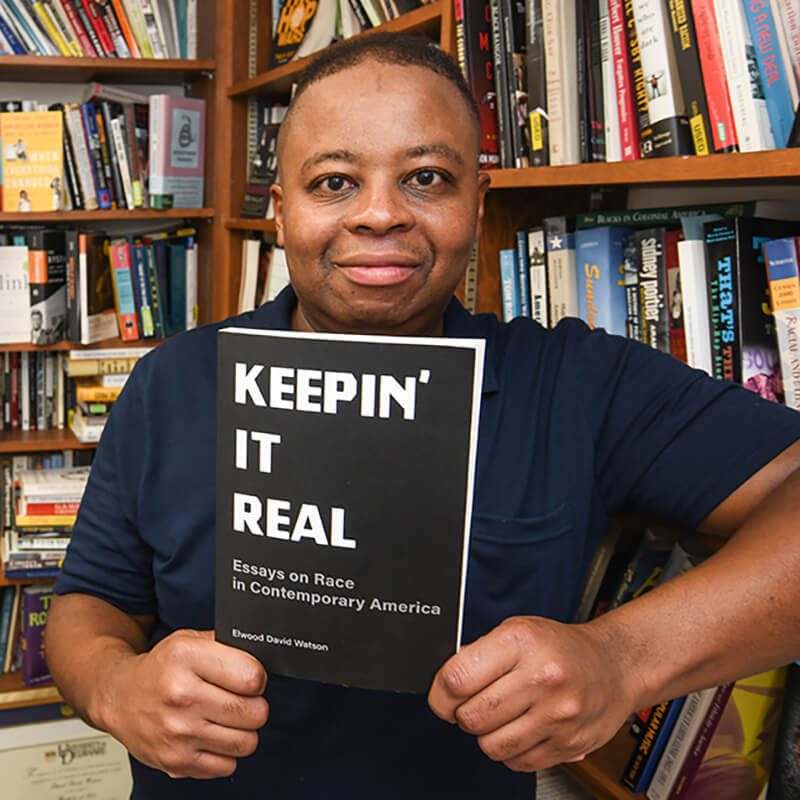Black American history vastly different from other ethinic groups
February 25, 2023
Here we are. Another year, another February, and we are deep into another Black History Month. Various institutions and individuals from all walks of life are celebrating the numerous milestones and accomplishments of people of African descent. There was no reason to believe that 2023 would be any different, and it is not. Indeed, it appears to be business as usual as millions of Americans and a few others throughout the world celebrate the history of Black Americans.
For 28 days (29 in leap years), we are rightly introduced to and, in some cases, reminded of the innumerable contributions that Black people have made to this nation. Corporations make bold and brazen acknowledgments to various Black entertainers, athletes, politicians, educators, ministers and historical figures as they relate to Black America. Black churches and other religious organizations sponsor dinners (mostly soul food) that represent a culinary smorgasbord undeniably definitive of recipes that originated in the African diaspora. Numerous educational institutions, from elementary schools to colleges and universities, sponsor a multitude of cultural programs, showcase films and documentaries and bring in an array of speakers and activists of varied stripes in an effort to salute Black history.
All of this is good. Black people have a complex and vibrant history. This can be said of all ethnic and religious groups. Yet, the history of Black Americans is vastly distinct from other ethnic groups due to the religious, economic, social, psychological and educational experiences that have been visited and inflicted upon us.
By exploring and acknowledging Black History Month, the nation is paying homage to a group of men and women who are strong, resilient, innovative, forgiving (in some cases, arguably too forgiving) and have contributed immensely to the vitality and success of the United States – a nation where some people never intended for us to obtain full citizenship or be fully included within the panorama of American culture.
In a nation – and, sad to say, in some other countries – where Black people perennially are depicted as pimps, thugs, prostitutes, derelicts, baby mamas, callous welfare recipients, oversexed species and generally retrograde menaces to society, Black History Month highlights vital facts, notable statistics and distinguished accomplishments. Although there has been notable improvement in media portrayals over the past few years, particularly regarding commercials, the triumphs far too often are obscured and dismissed from public discussion and are an opiate to counter the negative narratives often ascribed to Black people.
Truth be told, racism has always been a part of this nation. It is deeply ingrained in the fabric of our culture and is as American as apple pie. What we have witnessed over the past several years is blatant, undisguised bigotry – the type that many White people had to keep disguised and leashed since the 1950s or at least the early 1960s – now being allowed to unapologetically permeate various sectors of our society, in many cases without consequences.
Black History Month explores and exposes the ample diversity and plethora of talent that has always existed in Black communities. This diverse exposure dispels the largely held myth by many, particularly white Americans, that Black America is a one-note monolith.
Our current political and cultural climate virtually necessitates the need for such reinforcement. Anyone who has a pulse and is socially and culturally woke is astute to the current challenges facing Black Americans. We have brazenly racially divisive right-wing politicians who routinely stoke the flames of racial and cultural animosity and division. The time is ripe for a reinforcement of Black excellence to combat such racial resistance.
Since the time of this nation’s inception, Black Americans have had to wage a historically long battle, fighting to obtain rights that were supposed to be guaranteed by our constitution and that most other groups have taken for granted. The mountains and minefields that our ancestors had to face head-on and, in many cases, triumphed over – despite seemingly unrelenting adversity – are a testament to their impervious strength and spirit.
We are enduring similar battles today in the 21st century. Being Black in America often means waging an ongoing battle. It means dealing with a history and people that have been defined by blood, sweat, tears, pain, occasional dashed dreams, setbacks and periodic victories.
Black history is not some event that should be confined to one specific month of the year. Such an attitude is disrespectful and patronizing. Rather, the history of Black people, like other ethnic groups, is one that deserves full and undivided attention.







